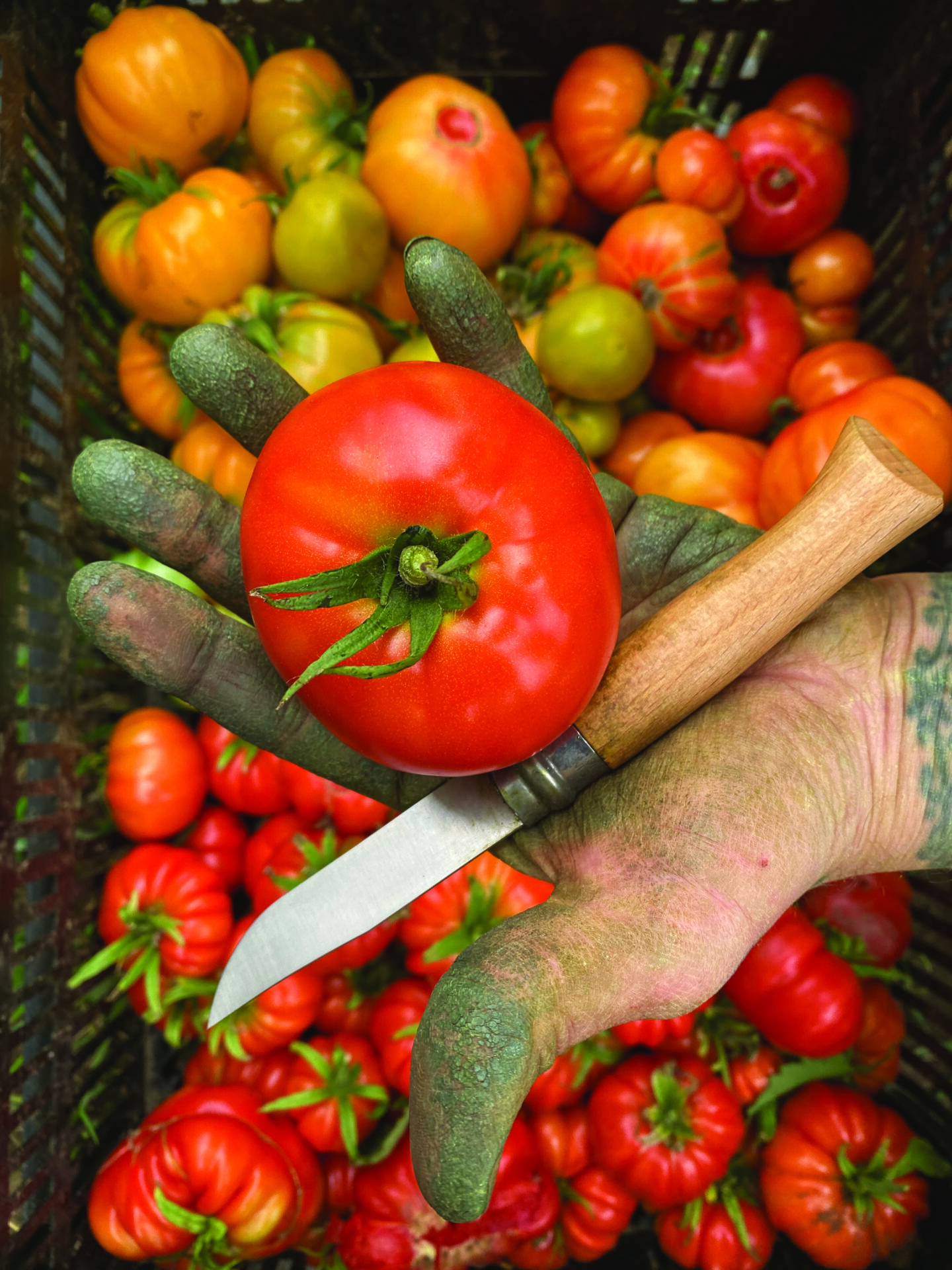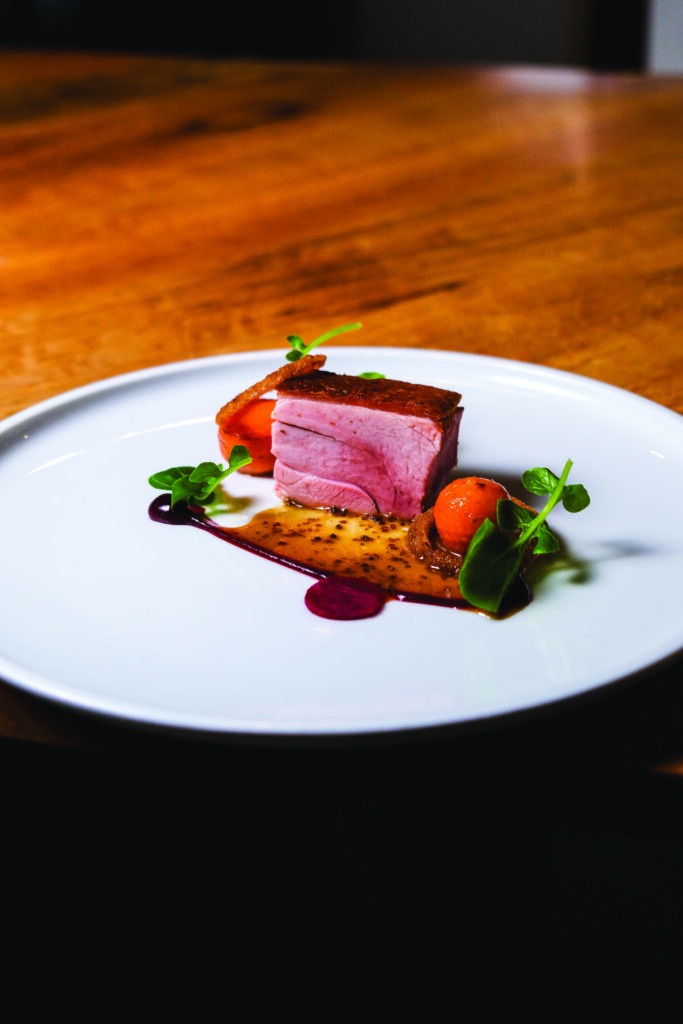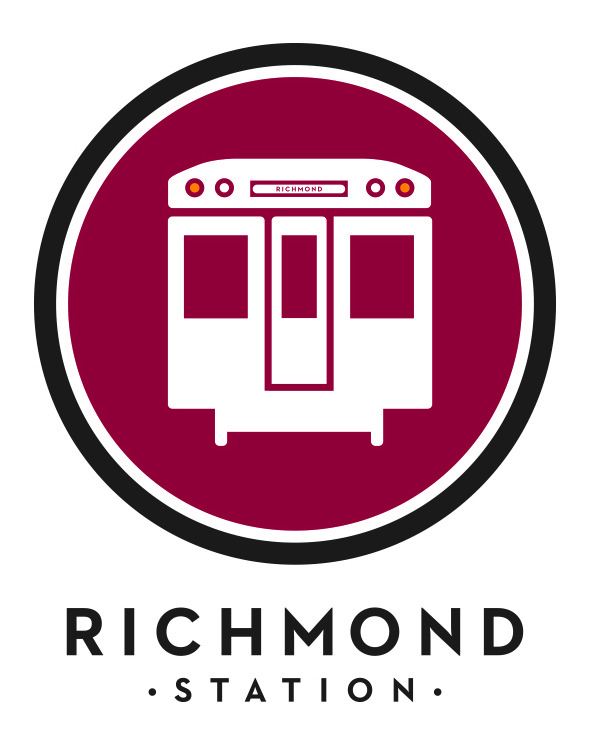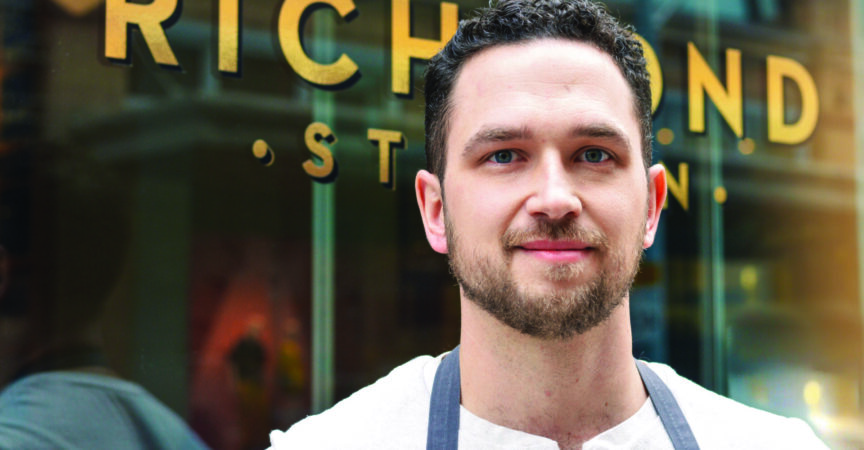It all starts with an honest potato.
By: Carl Heinrich
It may have taken a pandemic, but local food has come of age and is proving to be good business.
Chef Carl Heinrich stands out as an early advocate of the growing farm-to-table movement. Richmond Station, his acclaimed restaurant in Toronto’s downtown financial district, was designed around Carl’s unwavering belief that local food was not only the “right” way to do things, but possibly the most long-sighted, prescient approach to a successful restaurant. Dining room guests are delighted daily with tableside stories of locally sourced and raised ingredients and inspired integration of seasonal flavours. But the dining room is really only the showroom for an operation that is centred in the back of house and winds its way out the kitchen door to Richmond Station’s garden at the 100-acre organic New Farm in Creemore, Ontario, with many stops at local, Ontario farms along the way.
Carl Heinrich is a stand-out figure in the local food and culinary tourism scene in Ontario. Just a few weeks ago, the Top Chef Canada winner was in Hastings County to speak at a Culinary Tourism Alliance event that brought chefs, restaurants and producers together for a session on the positive economics of building direct partnerships across the local food value chain. “It’s just funny to me how people are still saying they’re having a hard time buying locally. In the scheme of things, it’s not even close to the hardest thing we do, it’s very feasible, especially if you’re outside the city and close to producers. Buying local has been a hallmark of what we do at Richmond Station since we opened 11 years ago, and we buy a lot of local food. We only buy whole animals, do our butchery in house and make our own charcuterie. We spend a lot of time driving around Southern Ontario visiting farms and learning more about soil, breed and feed and distance-to-abattoir. When we get to pay producers directly, it leads to better quality food on the plate.”
In an industry struggling to regain momentum following the pandemic, food costs and labour challenges have added new layers of doubt and uncertainty for many operators. Against this backdrop, Heinrich is seeing his investment in local, organic food pay off.


“I can’t talk to anyone in the restaurant industry without them telling me how hard it is to buy food because it’s so expensive. We’ve certainly noticed it in our restaurant, but it’s things like imported oils or Kosher salt, which went from about $3.00 to $10.00 a box over the past five years. We’ve also noticed that, while the price of local, regenerative, organic foods has gone up, those increases don’t begin to match the rate of inflation for conventional foods sourced from elsewhere in the world.”
This, Heinrich suggests, is because local, organic foods are grown with far less (if any) supplements and implements, which are extremely expensive. So, while the food itself may cost a little more, you’re saving on many of the additional expenses built into the international and conventional food system. “We’ve been playing this trumpet for 11 years,” says Heinrich. “It’s nice to see such an enormous benefit coming to full fruition now. For sure, our food costs have gone up a little bit, but nowhere near what they would have if we were a Spanish restaurant and had to rely on food coming from elsewhere in the world.”
Seeing your philosophy and cuisine come of age and align with the economics of our time could make some a little smug, but Heinrich is focused and committed to sharing his success with industry peers. “I’ve done many, many presentations where I try and explain the benefits of healthy soil and buying food that’s grown in a regenerative practice, but people will resist it if it costs more money and is harder to find. I’ve been telling producers and suppliers that none of these movements – local, regenerative or organic – can scale until those foods are closer in price to conventional foods. If we want this movement to mean anything, we can’t continue to charge a premium for these products. You have to make them accessible and affordable. What I’m seeing now is more restaurants are just calling their suppliers and having local and organic foods shipped because they’re the same or closer in price to conventional. It’s starting to make bottom-line sense.”
Beyond the tangible benefits that come from profitability, Heinrich has also seen many intangible benefits in his restaurant, particularly on the labour and retention front. “Retention is better when you buy real food that is whole,” he asserts, noting that Richmond Station staff find their work more purposeful and meaningful when it’s integrated into the dirt-to-plate process. “When your produce comes in with dirt on it, when your animals come in whole and your staff is responsible for knowing more about the product, breaking that product down and treating that product better, the more they’re invested. It’s no longer just steaks and fish, it’s an honest potato or carrot. That extends ever further when you put the seeds in the ground, take care of the crops and then bring the produce into the restaurant. Maybe not everyone wants to learn how to butcher or bake bread, but there are plenty who do and those who do stay longer and get more out of the experience.”
It’s something we’ve always practiced and preached,” Heinrich shares. “I believe people want to work in our business because they value the way we buy food and operate our business. The next generation of people getting into this industry want to work for bosses who care about progress and leaving the world a better place. In this industry there are people saying food is too expensive and people are too hard to find and they don’t have the skills they need. I think there are clear answers to those things and it starts with integrity.”

Richmond Station | @richmondstation

Foodland Ontario | @foodlandontario

Culinary Tourism Alliance | @culinarytourismalliance









